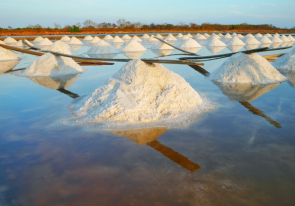Sumber Tani allocates IDR 335 billion for 2023 Capex
Oil palm plantation firm PT Sumber Tani Agung Resources Tbk (STAA) has allocated IDR 335 billion (US$ 22 million) Capital expenditure in 2023 to increase its plantation area to 60,000 hectares (ha) in 2025.
Established in 1970, Sumber Tani is the holding of a group of oil palm companies. It has 13 plantations in North Sumatra, South Sumatra, West Kalimantan and Central Kalimantan with a total area of 42,000 ha. The company also owns 9 palm oil factories, 1 core milling facility and 1 solvent extraction plant.
Due diligence on prospective plantations
Sumber Tani will use its Capex for various purposes:
- IDR 235 billion for road networks, facilities and its sub-facilities.
- IDR 49 billion for machines and equipments.
- IDR 63 billion for vehicles and heavy equipment.
- IDR 2 billion for inventory.
"This year's Capex is quite conservative. It's only 51% from our 2022's Capex of IDR 692 billion," Head of Investor Relation of Sumber Tani Edward Wijaya said on February 21, 2023, as quoted by investor.id.
In 2023, the company will focus on its downstream industry and diversification of its products such as olein, which will be operational by Q1 2024.
"We are incessantly completing the construction of facilities, such as refineries, storage tanks and others. It is still in the process and all tenders for the machines and contractors are in the finalization stage. Hopefully, it will be operational by early next year," President Director Mosfly Ang said.
Therefore, the majority of the company's CPO would go to the downstream industry and be processed to generate added value. "Our biggest portion of sales will later on shift from CPO to olein products and mostly exports," Ang added.
The company is working to increase its plantations area to 60,000 ha in 2025 from the current 48,100 after it acquired PT Hanuraba Sawit Kencana and PT Sawit Agro Lestari through its subsidiary PT Transpacific Agro Industry (TPAI).
The company has conducted a due diligence with several potential plantations, especially the ones that are easy to be synergized with its current operational locations.
"The addition of land in West Kalimantan is possible. So, we see how we can develop one more area in the island," Ang said.
Risks in oil palm plantation
According to the "Oil palm in the 2020s and beyond: challenges and solutions" journal by Denis J. Murphy, Kirstie Goggin and R. Russell M. Paterson, as published in the cabiagbio.biomedcentral.com, oil palm crop production faces many future challenges, including emerging threats from climate change and pests and diseases.
"The inevitability of climate change requires more effective international collaboration for its reduction. New breeding and management approaches are providing the promise of improvements, such as much higher yielding varieties, improved oil profiles, enhanced disease resistance, and greater climatic resilience," the journal said.
As the world’s largest producer of palm oil, Indonesia’s clearing of natural forests, including forested peatlands, to make way for oil palm plantations is one of Indonesia’s largest sources of emissions. In addition to contributing to the climate crisis, the smog produced when these forests are burned to make way for plantations drifts regularly to Indonesia’s neighboring countries, threatening the health of local communities. If weak governance in the forestry and plantation sectors is not adequately addressed, Indonesia risks failing to deliver on its domestic and international commitments to significantly reduce greenhouse gas emissions while also exacerbating human rights problems.
Human Rights Watch reported that the Indonesian Sustainable Palm Oil (ISPO), which aims to support commitments to reduce greenhouse gas emissions and improve sustainability, has failed to ensure that oil palm companies do not harm communities and aggravate land disputes. However, the ISPO has weak sanctions and accountability provisions and no grievance resolution mechanism.
Just like other oil palm plantation, Sumber Tani also faces another challenge of the volatility of palm oil prices or Crude Palm Oil (CPO) in 2022.
Already have an account? Sign In
-
Start reading
Freemium
-
Monthly Subscription
30% OFF$26.03
$37.19/MonthCancel anytime
This offer is open to all new subscribers!
Subscribe now -
Yearly Subscription
33% OFF$228.13
$340.5/YearCancel anytime
This offer is open to all new subscribers!
Subscribe now






